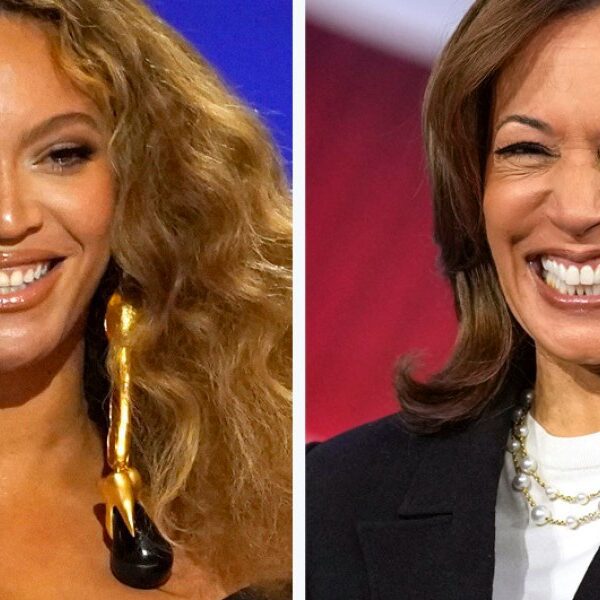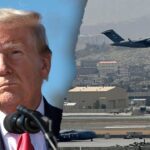Taiwan President Lai Ching-te claps while he visits a military camp in Taoyuan, Taiwan May 23, 2024.
Ann Wang | Reuters
Taiwan is under growing pressure to build up its defense capabilities and deterrence against China in the face of uncertainty surrounding the U.S. elections slated for November, according to security and policy analysts.
Taiwan’s foreign minister, Lin Chia-lung, last month told reporters that the self-governed island must rely on itself for defense and will likely keep spending and modernizing its military in the face of threats from China, which sees the island as its own.
The minister’s comments came in response to presidential candidate Donald Trump suggesting that Taipei should pay Washington for military protection. Trump said that the country “doesn’t give us anything” and has taken “100% of our chip business.”
Experts said Trump’s remarks highlighted the unpredictability that faces Taiwan, especially after President Joe Biden dropped out of the race and endorsed his vice president, Kamala Harris, who has relatively less foreign policy experience.
‘Unpredictable’ Trump
While Biden has been “more consistent in his policy toward Taiwan,” Trump, since the start of his first term, has proven to be “erratic and unpredictable,” said Stephen Nagy, professor of politics and international studies at the International Christian University in Tokyo, Japan.
This is largely due to a difference in strategy between the two leaders. While Biden has, on several occasions, stated the U.S. would come to Taiwan’s defense, Trump has opted for “strategic ambiguity,” Nagy added.
Just days after his inauguration, Trump had become the first U.S. president in decades to communicate directly with Taiwan‘s president.
Soon after, he suggested that the U.S. may change its long-held position that Taiwan was part of “one China.” However, he reportedly walked back on that position on a call with Chinese President Xi Jinping in February 2016.


Regardless, Trump’s tough stance on China has led many in Taiwan to believe he would support the island substantially, according to Lu-Chung Weng, a Political Science professor at Sam Houston State University.
Similar to 2016, the candidate is running on a tough-on-China policy and has already proposed a major ramp-up of his trade war against the country.
According to Muhammad Faizal, a research fellow at Singapore-based S. Rajaratnam School of International Studies, a tougher China containment stance by Trump 2.0 would be welcomed by the ruling party of Taiwan and other Indo-Pacific partners.
However, he added that they also fear that Trump’s “myopic and transactional approach” to foreign and defense relations — exemplified by his comments about Taiwan paying the U.S. for defense — could place them back on his geopolitical dartboard.
Meanwhile, while experts who spoke to CNBC agreed that a second Trump administration was likely to be packed with China hawks who see defending Taiwan as a top priority, the extent to which they may be able to steer policy remains unclear.
“I think anyone who says they’re sure where [the administration] would head is out of their mind … I think the degree of unpredictability would be greater than ever,” said Richard Heydarian, policy adviser and senior lecturer of international affairs at the University of the Philippines.
Harris’ statecraft?
On the other side of the ballot is presumptive democratic nominee Harris, after Biden succumbed to pressure to drop out of the race amid concerns about his age.
According to analysts, she is expected to remain somewhat consistent with Biden’s agenda and foreign policy.


“I see [Harris] as a continuity play in terms of foreign policy trends more broadly over the last several decades,” Tina Fordham, founder of Fordham Global Foresight, told CNBC’s “Worldwide Exchange” last month.
Dewardric McNeal, managing director and senior policy analyst at Longview Global, said there was a lack of clarity on exactly what Harris thinks as distinct from Biden, with her first 100 days to be closely watched by Beijing if she were to win.
As vice president, Harris has expressed support for Taiwan and met with the island’s new leader, Lai Ching-te, in 2022. However, she would come into office with significantly less foreign policy experience than President Biden.
“While I anticipate some continuity [with Biden] in her China policy, it is essential to recognize the strong influence that personalities have on policy shaping, making, and execution,” McNeal said.
“Vice President Harris is not Joe Biden, and her approach to statecraft will differ,” he added.
Taiwan’s defense measures
As both candidates pose a level of uncertainty for Taiwan, policy experts said the island-nation was under more pressure to accelerate efforts to build up its own deterrence.
These efforts have already been building momentum since the election of Lai in January, with U.S. elections only injecting more urgency, according to Ava Shen, who covers Taiwan and Chinese foreign policy and domestic politics at Eurasia Group.
Lai, a member of Taiwan’s Democratic Progressive Party, is seen by Beijing as a separatist and has continued his predecessor’s efforts of relationship building with Washington amid intensifying military and political pressure by China.
His inaugural speech emphasized the importance of aligning with democracies and strengthening national defense. Around the same time, an extended one-year mandatory military service for men came into effect, an initiative announced under former DPP president Tsai Ing-wen.


Meanwhile, Taiwan has been raising total spending on defense in its annual budgets, with the amount reaching 2.6% of GDP this year, and another proposed increase for 2025, according to local reports.
Bolstering defense has entailed securing more weapons from the U.S. As of February this year, the country was waiting on a backlog of some $19 billion worth of already-purchased American weapons, according to the Cato Institute.
A bipartisan delegation of U.S. lawmakers met with Lai in May, promising that weapons and $2 billion of a support package for Taiwan’s military was on the way.
China’s latest official defense budget was $224 billion, about 12 times that of Taiwan’s, according to a report from the Council for Foreign Relations.
“In general, the government and society of Taiwan feel a certain degree of disquiet or anxiety,” said Kwei-Bo Huang, professor of diplomacy at Taiwan’s National ChengChi University and secretary-general of the Taiwan-based Association of Foreign Relations.
He added that in the event of a Trump victory, Taiwan is expected to continue to expand its defense budget to at least 3% of its GDP, which is at par with what the former president’s advisors are reportedly considering asking NATO members.
According to Professor Lu-Chung of Sam Houston State University, while the U.S. elections are certainly bringing more pressure on Taiwan to boost deterrence, this is beneficial for the country, as it must grapple with tough realities.
“As to the self-defense plan, Taiwan will continue what it is doing, but filling the gaps across the Taiwan Strait is not easy,” he said.
— CNBC’s Zenith Wong contributed to this report.














